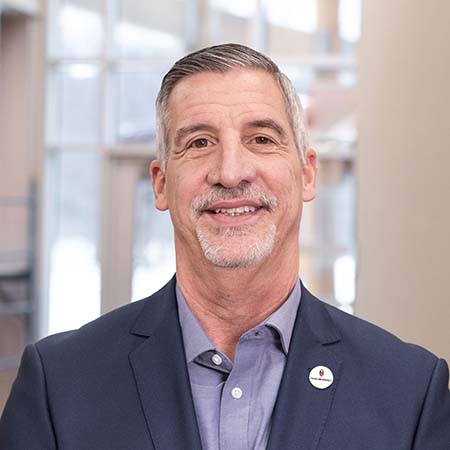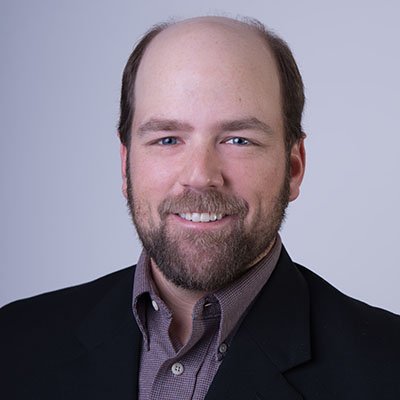DOWAGIAC, Mich. — The new CEO of Mno-Bmadsen, the non-gaming economic development arm of the Pokagon Band of Potawatomi Indians, had a short learning curve when he took over the corner office on March 1.

That’s because Julio Martinez has served as CFO of the organization since 2016, and had helped devise and implement Mno-Bmadsen’s existing “buy, hold, grow” investment strategy for companies in diversified industries.
Case in point for his readiness for the position: Mno-Bmadsen’s manufacturing portfolio, known as Mno-DREK, closed on the acquisition of Elkhart, Ind.-based Walerko Tool and Engineering Corp. within days of Martinez taking over. The company is Mno-DREK’s third holding.
Martinez says the deal was “emblematic” of doing M&A in the current COVID-19 era because the pandemic served as a jolt that convinced owners now was the right time to sell.
“It gets hit with all this uncertainty, and I think it’s triggering owners to say, ‘Let’s take our chips off the table here and go do something else,’” Martinez told Tribal Business News. “There was a previous attempt to sell the business and the deal fell apart at the end. We learned about it and the guy offered us a great deal on it. He wants to retire.”
A second generation family-owned business, Walerko offers CNC machining of castings, weldments, piece parts, prototype parts, fixtures, and gages for a range of customers in the aerospace, military and nuclear industries.
The Walerko deal afforded the tribe “a very quick turnaround” after it learned the owners were looking to sell around the end of November following a breakdown in negotiations with a prospective private equity buyer.
Martinez, who is not a member of the Pokagon Band, has served as acting CEO at Mno-Bmadsen since mid January when founding CEO Troy Clay departed for a similar position at Noo-Kayet Development Corporation, the economic development arm of the Port Gamble S’Klallam Tribe in Kingston, Wash.
With a career spanning investment and economic development for tribes in Florida and Oregon and for a family office, Martinez spoke with Tribal Business News about Mno-Bmadsen’s ongoing investment strategy and his outlook for M&A.
What sets Mno-Bmadsen apart from other firms that makes your company competitive in deals against financial buyers?
We’re fairly unique. We’re kind of like a family office. Our philosophy of buy, hold, grow — that’s a preferred strategy for someone like the Walerko deal where you have a generational exit. Those companies don’t really like selling to PE firms, especially at the size that we’re dealing with in the lower middle markets. These aren’t giant deals, but these guys have built their companies, they know their employees.
How do family-owned companies pay more attention to issues like legacy and what happens after the sale?
They don’t want it torn apart and sold. They want it to continue. That’s our story; that’s how we do things. It’s buy, hold, grow. Walerko will continue to be Walerko. That history will still be with it. Their employees will be able to stay there. It’s very hard for a PE firm to come in and compete with us. In that deal, there was a PE firm negotiating and that fell through. I wasn’t part of that negotiation, but what the owner tells me was … it just didn’t go well. Negotiating with a PE firm is a more difficult task than sitting down with a much more personable, family kind of environment that Mno is. We are investing for the tribal citizens into future generations. That allows us to compete in the market.
With one deal already under your belt just a few days into the CEO role, what’s your vision for Mno-Bmadsen going forward?
I was instrumental in putting together the investment plan that’s currently in place. Really, the vision is just to continue along that investment plan, which calls for investments in the sectors that we’re currently in and likely pushing out into another sector to further diversify our holdings. Right now, we’re in professional services, we’re a little bit in construction. We now have some real estate holdings and manufacturing.
Our professional services portfolio is robust. We opened up two new companies. One we spun off our existing architecture company in January, and we acquired another architectural company in Tulsa, Oklahoma. Both of those occurred at the beginning of the year. So 2021 really started off with a bang. (Editor’s note: Click here for a prior Tribal Business News report on Mno-Bmadsen’s professional services growth.)
We’re looking now to open a couple of real estate investments shortly here in May, and are looking to expand on the real estate investment side. We like that sector for diversification purposes.
Does that push for continued diversification have you looking at any new industries?
We’re going to look for potentially another platform investment. I don’t have one hot and heavy. We had one and I’m going to try to revisit that, but COVID kind of killed momentum on a couple of things. People were kind of holding their cards close to their vests until they got a sense of more normalcy. But we see those things starting to pick up again. We’ll revisit a couple of things, both by the utility sector and also a construction company to add. We have only one company now in our construction sector, so we’re looking to add there.
How has your financial experience prepared you for this role?
Frankly, we’ve come to the conclusion that having a very strong financial background is almost essential for any CEO of a company like Mno. What we do is we invest. We manage our existing investments and look for new investments. Those are the two big things that Mno-Bmadsen does. Having a deep understanding of financial markets and accounting — those kinds of skills that most CFOs have — lends itself perfectly to the CEO role in a company where one of the primary purposes is to invest or grow investments.
You’ve been involved in tribal organizations since the late 1980s, when tribal gaming brought a new level of opportunities to tribes. How does experiencing that shift in tribal fortunes over the last few decades help to shape your perspective at Mno-Bmadsen today?
I think it’s fantastic. It’s the way and the wave in Indian Country right now. I think Mno is out ahead of it significantly. Many tribes just haven’t reached that level of sophistication. In particular, the way Mno is structured, it acts autonomously, but not completely. Our board members are not the elected officials. The elected officials approve and appoint members to our board, but there are no elected officials on our board. That separates the politics.
Tribes are political entities. Most tribes don’t separate out an entity like Mno that has the ability to do business outside or off the reservation. The key to our success is the ability to go out independently and negotiate terms, get bank leverage by borrowing and also by partnerships.
All of those things are away from what always is a political body. That’s key in Indian Country, and I think it’s starting to develop. It’s exciting to be in the forefront after so many years in Indian Country.
Does the pandemic shape the deals that you look at?
I don’t think it shapes how we look at deals at all. What we do wasn’t affected by the pandemic. There were some other things that came up because of it, in terms of how we work and where we have weakness, even within our portfolio. … But this is just a rare occasion that’s unlikely to reoccur. In terms of monitoring risk, I just kind of ignore it. I just don’t ever see it happening again. To adjust your strategy or your philosophy based on this once-in-a-lifetime or maybe once-in-two-lifetimes event, I don’t believe is a good fundamental practice.
How did the ongoing pandemic and the effects it had on tribal gaming reinforce the need for tribes to diversify their revenue streams?
A couple of things became very evident. There is nothing that’s going to match a casino in terms of revenue, especially the Pokagon Band, which has four casinos and two very large ones. It’s not realistic to think that even if you diversify into other investments, that it will replace (casinos). Now, will we be able to provide revenue for governmental operations as we continue to grow? Absolutely. But this is such a unique and unlikely to reoccur event that it’s almost irrelevant to try to analyze what went on because it’s unlikely to ever happen again, in my opinion.
(EDITOR’S NOTE: This interview was edited for clarity and length.)
